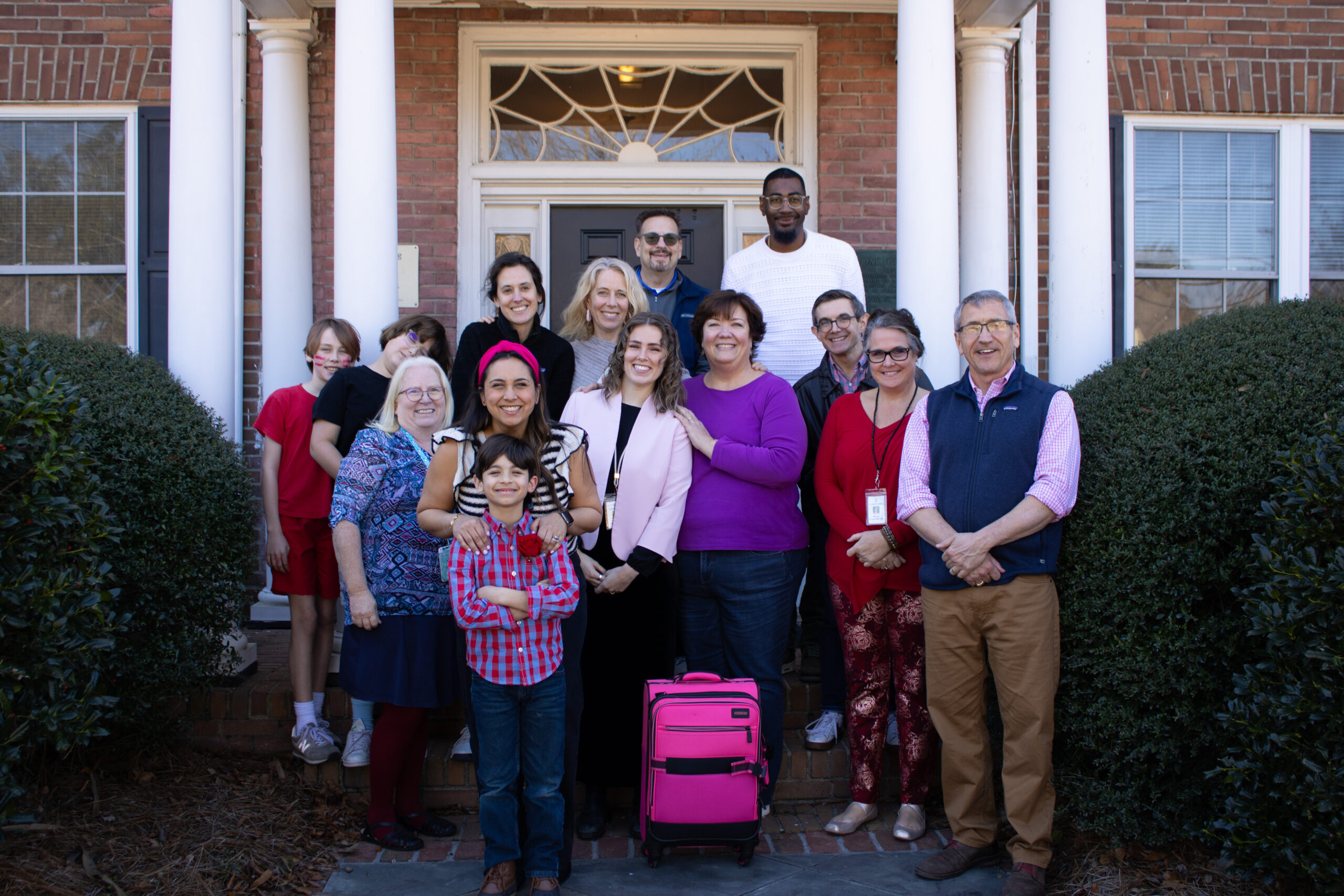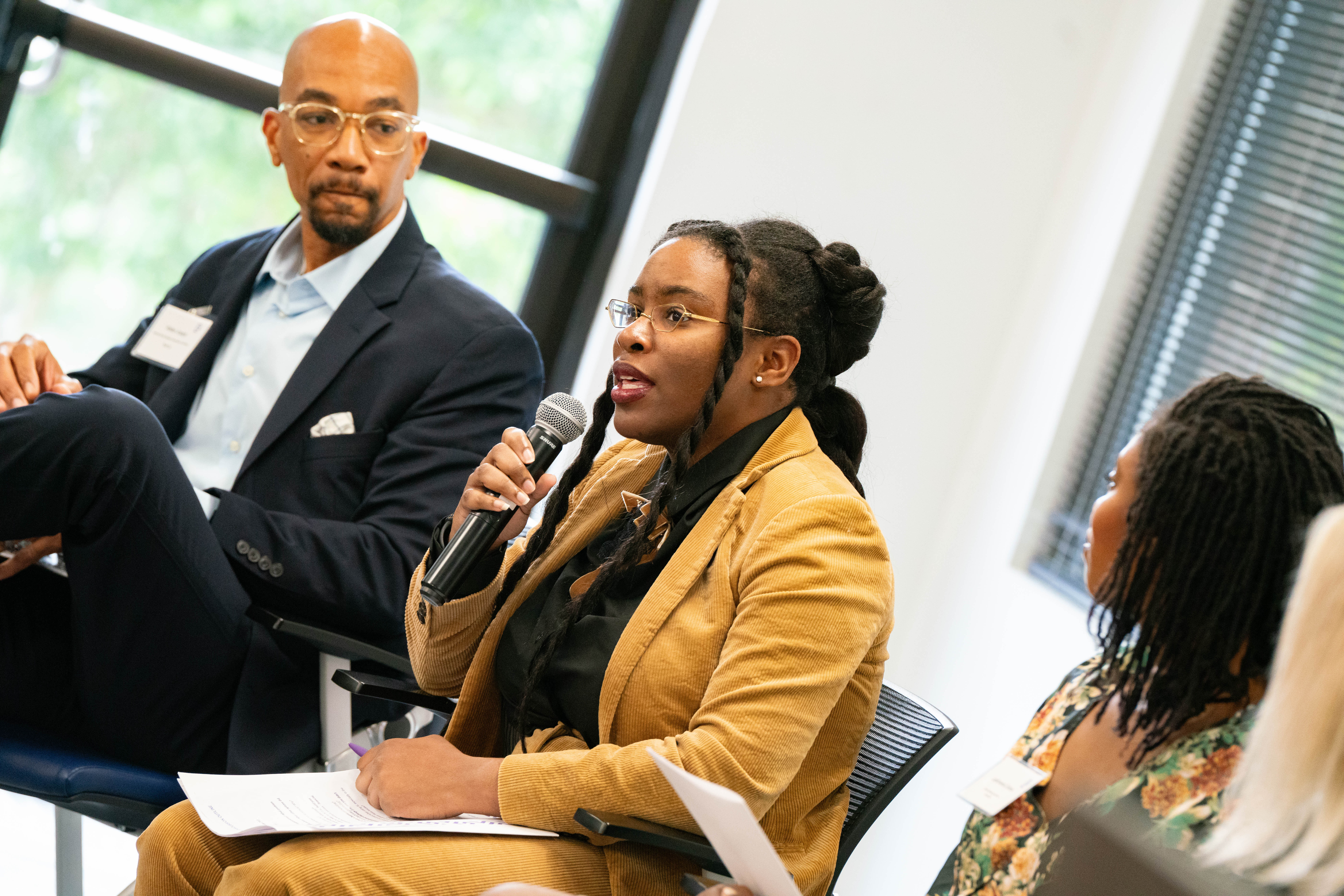Navigating the transition from the housing system or foster care to adulthood can be a challenging journey for youth. However, with support systems in place, young individuals can find the necessary tools and resources to pave their path toward success. At Carolina Youth Development Center (CYDC), our extensive history of compassion has shown us the power held by not only community-based support programs and transitional housing systems but also the community itself.
NOTE: As of Feb. 29, 2024, Carolina Youth Development Center (CYDC) has rebranded to Landmarks for Families. Our nonprofit, community programs and residential services remain committed to cultivating thriving youth and families in this new chapter.
Transitional Housing Explained
Transitional housing is a temporary solution that helps individuals or families experiencing homelessness or housing crises. It offers a stable environment and supportive services to address underlying issues and regain stability.
Transitional housing programs typically aim to stabilize lives, develop skills and facilitate progress toward permanent housing, with common services including case management, counseling, job training, education support, substance abuse treatment, life skills training and healthcare access.
*If you are or know a young person in need of transitional housing, visit our website to learn more about our NuHouse location and eligibility.
Why Transitional Housing Matters
In most healthy families, essential life skills are often learned from our caregivers. However, where can we turn when falling back on Mom or Dad is no longer an option? At CYDC, we place great importance on preparing youths for a successful transition into adult life with services founded in the Teaching-Family Model (TFM).
Transitional Housing Services
The South Carolina Department of Social Services states children may remain in the foster care system until they are 18. Until age 21, youth can stay in voluntary placement. But what comes after that? Transitional housing services provide a crucial bridge between the housing system or foster care and independent living.
1. Safe and Stable Accommodations:
Transitional housing programs offer secure living environments, ensuring youth have a stable foundation to pursue their goals. By providing a safe space, these services alleviate the stress and uncertainty that often accompany the transition to independent living.
2. Life Skills Development:
Youth in transitional housing receive valuable support in developing essential life skills. These programs offer guidance and training in areas such as financial management, employment readiness, household management and problem-solving.
3. Education and Career Support:
Transitional housing services recognize the significance of education and career development in achieving long-term success. Youth are provided with educational support, such as tutoring, college prep and assistance accessing scholarships or vocational training programs. Additionally, they receive guidance in exploring career options, job search strategies and interview preparation.
How Our Community Supports Growth
“It takes a village to raise a child.” This old adage rings true today; our young people are all the proof you need. To ensure successful outcomes, our community must invest in its children. The collaboration of community members and organizations enhances the positive outcomes for these young individuals.
This involvement can take many forms, including the following:
- Mentorships and Role Models: We could all use someone to look up to; mentorship programs provide that and much more! These opportunities connect youth with caring and supportive adults who offer guidance, encouragement and valuable insights based on their own life experiences. By having positive role models in their lives, youth gain confidence, broaden their perspectives and develop essential life skills.
- Employment and Internship Opportunities: Community-based organizations, businesses and local initiatives can provide valuable opportunities to gain practical work experience, develop professional skills and expand our networks. Through these connections, young people can access further support and guidance as they transition into the workforce.
CYDC Is Ready To Support Your Success
Is your family or child in need of support? With more than 200 years of experience supporting South Carolina’s youth and families, Carolina Youth Development Center is equipped to lead your child or family through adversity. Whether on-site or in-home, our compassionate team is ready to meet you where you need with the services you need. Contact us today to learn more about our programs and speak with a member of our team.


